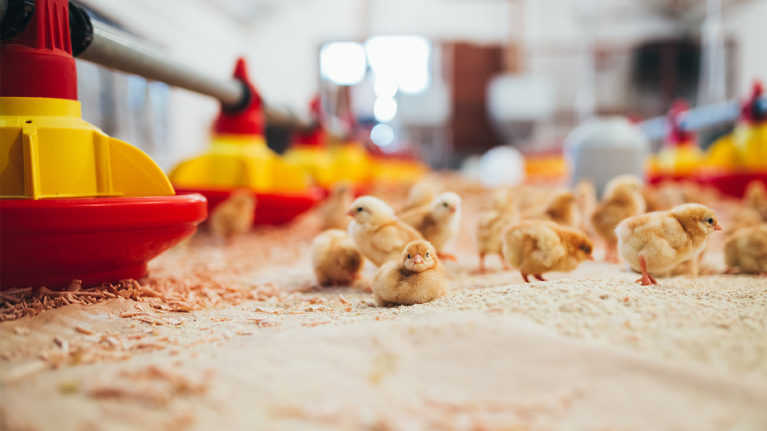IoT to boost production efficiency and animal wellbeing in the agri-food sector
Advanced farm management based on data monitoring to improve production in a sustainable and environmentally responsible manner with a view to achieving a higher degree of competitiveness in the sector.
Efficient poultry monitoring to ensure animal wellbeing from the farm to the processing plant including handling and transportation.

Within the framework of the Internet of Food and Farm (IOF) project Tekniker has mainly focused on optimising poultry production chains by monitoring poultry health to offer transparency in the production chain and enhance process traceability.
Monitoring ensures optimum, uniform end weight, reduces the number of potential blemishes, increases levels of comfort and optimises slaughtering processes.
Consequently, the technology centre has developed sensor devices (wireless) to measure environmental conditions at farms and on transport trucks.
More specifically, work has focused on real-time monitoring and analysis of key parameters related to chicken farming such as amounts of food and water, weight changes, ammonia levels, temperature, humidity, etc.
Wearable devices have also been provided for workers handling poultry cages to monitor how trucks are loaded. A number of key parameters have also been monitored during the transport stage to abattoirs by using portable vibration sensors (to register sudden truck braking, for instance).
All data is analysed against quality registers from the abattoir to identify critical points and implement improvements in terms quality for end products.
Tekniker, moreover, has developed a management platform to encompass the entire production stage (from the farm to the abattoir) that is based on a cloud supported by FIWARE open-source components. In this manner, data can be collected in the different stages of the production chain in an integrated and interoperable manner with the different chain actors to not only include operators but also platforms that only operate in one area such as, for instance, Porphyrio, a farm management tool.
Collected data is used to set up models based on machine learning techniques to identify parameters under critical conditions generating process inefficiencies. These models also support decision making thanks to a holistic improvement and vision of the entire production chain.
IoF2020 has received funding from the European Union’s Horizon 2020 research and innovation programme under grant agreement no. 731884
